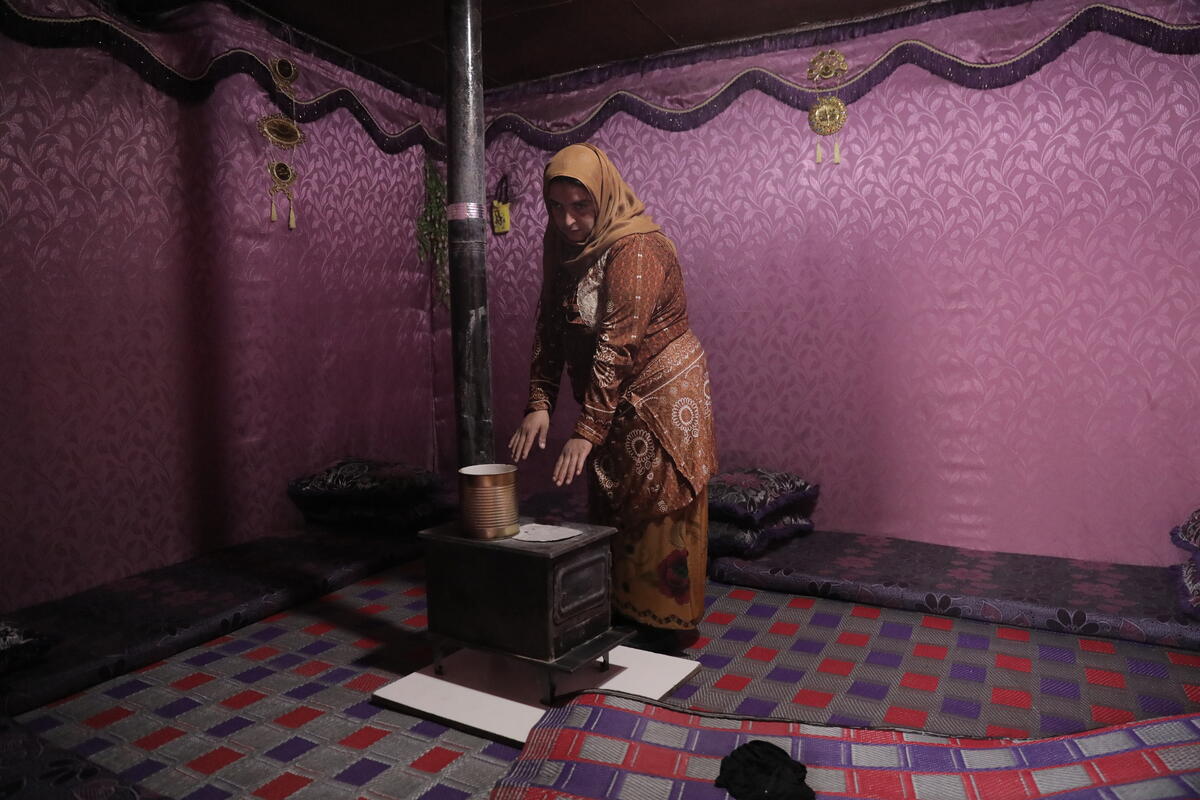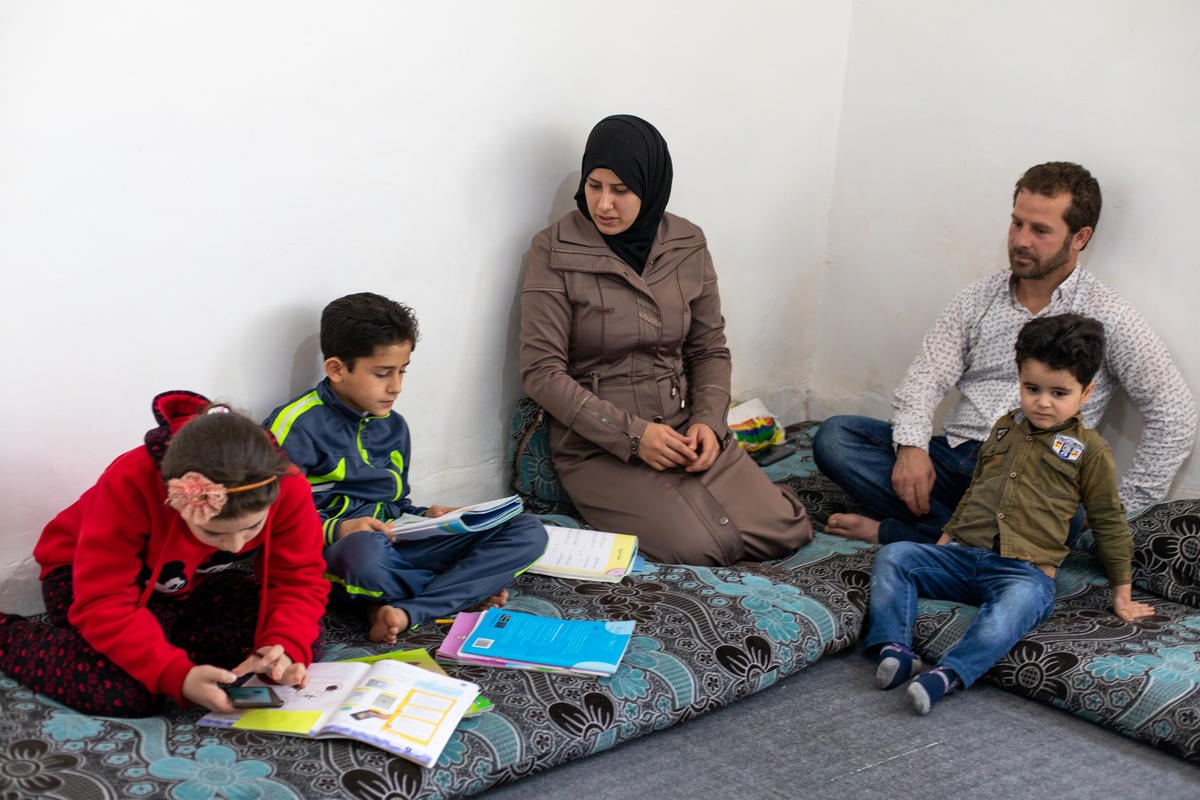'Eid' brings Somalis hopes for peace, memories of better times
'Eid' brings Somalis hopes for peace, memories of better times

DADAAB, Kenya, December 6 (UNHCR) - As Muslims around the world celebrate the joyous festival of Eid Al Fitr, Somali refugee Zeinab Sheikh Hassan finally has some glimmer of hope that perhaps next year, she and her family can mark the end of Ramadan in their homeland - in peace.
"I feel happy about the peace talks," she says, referring to the negotiations underway in the Kenyan town of Eldoret, where earlier this week, Somalia's Transitional National Government and five Mogadishu-based factions signed a joint cease-fire declaration agreeing to end violence in the Somali capital.
Observers said the deal, in which the signatories pledged to "solve existing political differences through dialogue and goodwill in a brotherly atmosphere", is potentially a significant breakthrough, holding out hope that if peace can be achieved in Mogadishu, it is possible throughout Somalia.
In Kenya's Ifo refugee camp, 20 km from Dadaab, 19-year-old orphan Zeinab takes care of her younger brother and two sisters, aged eight to 15. Until now, she says, returning to Somalia was just an unrealistic dream. "How could I go to Somalia? They are still fighting. Everyone is killing each other." Then, taking the edge of her burqa - the head covering traditionally used by Muslim women - to wipe a tear from her eye, she adds, "If Somalia gets peace, I will go back."
The three-day Eid Al Fitr festival, which marks the end of Ramadan's month of daily fasting, is supposed to be a time of joy and thanksgiving for Muslims. But for many Somalis in Ifo, it is a time to contemplate how dramatically their lives have changed since their homeland disintegrated into mayhem and lawlessness in 1991, forcing them to flee to Kenya. The arid desert region around Dadaab is now home to three camps housing more than 135,000 refugees, the vast majority of them Somalis.
"If I remember how we celebrated Eid at home in Somalia, it drives me crazy," says Halima Ahmed, a well-educated 36-year-old mother of eight. "We had everything - milk, meat, many kinds of vegetables - for the feasts that were supposed to mark the end of Ramadan." Just as importantly, she adds, before civil war broke out, "we had inner security, we could go out after the sun went down".
Now, she says, "because we don't have much money, we can't buy a goat, we can't buy a sheep, we can't make a special meal".
Each refugee in Ifo receives a basic food ration from the UN's World Food Programme meant to provide 2,100 calories a day, but the diet is simple and unvaried. Milk and vegetables are once-a-week treats only for those marginally better off refugees with their own money to buy provisions in Ifo's sparse open market.
After 10 years in the camp, Halima, who speaks good English, is luckier than many refugees because she has a job with UNHCR, assisting in a programme to end violence against women. From her modest pay, she has been setting money aside every month to buy new clothes for her children, as brand new clothes are an essential part of Eid celebrations, signifying new opportunities.
Even so, her 12- and 15-year-old daughters, like teenagers everywhere, clamour for more fashionable clothes, and the younger children beg for toys and sweets that are beyond her means.
Sweets and special types of food are supposed to be prepared for Eid, but for Ifo's refugees, the diet will remain the same - maize-meal and chapatis made from wheat flour. "It will not be a special holiday for me," refugee Abdullah Salad says in frustration. The 21-year-old orphan knows what he should do for the three younger brothers he takes care of: "My younger brothers should have new clothes, but I can't afford them. They should have different food for Eid, but all we have is what we normally eat."
Particularly at this time of year, more well-off Muslims must follow zakat - Islam's practice that the rich must show charity towards the poor. A special delivery of food treats for Eid promised by a benefactor in the United Arab Emirates, unfortunately, has failed to materialise, leaving camp officials embarrassed at the "feast" without delicacies.
So 36-year-old Fatumo Abdi, collecting her 15-day rations of flour and cooking oil, says the Eid meals she is preparing for her husband, mother and seven children will be the same as every other day's. But she still clings to the hope that they will celebrate next year's Eid at home. "Insh'Allah [if God wills it]," Fatumo says, the Eldoret peace talks will succeed. "If we get peace, we would like to go back to Somalia."
By Kitty McKinsey
UNHCR Regional Office, Nairobi








